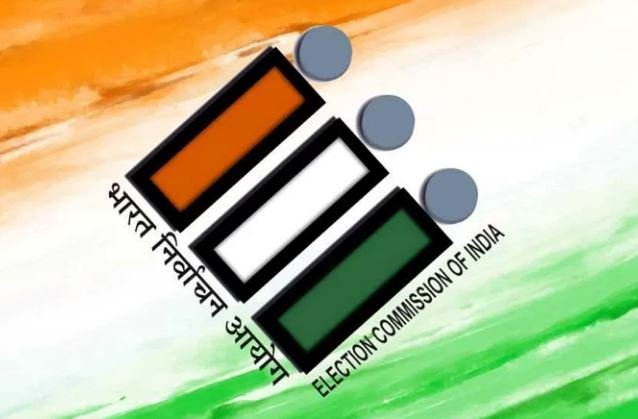Nagrota Bypoll Candidates Reveal Sharp Contrasts in Wealth and Backgrounds
Contrasting Fortunes in Nagrota Race: Harshdev Singh Battles Political FIRs, Devyani Projects Corporate Strength, and NC’s Shamim Symbolizes Simplicity Amid Crorepati Rivals
- Foreign Degrees, Local Contrasts: Devyani Rana and Harshdev Singh Bring Global Education to Nagrota Contest as NC’s Shamim Begum Declares No Assets and Minimal Cash
Jammu, 20-10-2025: The nomination disclosures for the upcoming Nagrota Assembly by-election have highlighted sharp contrasts among the major candidates in terms of wealth, education, and legal standing. Among the four prominent contenders, Devyani Rana of the BJP, Harshdev Singh of the JKNPP-I, Shamim Begum of the National Conference, and Independent candidate Anil Sharma, the spectrum ranges from foreign-educated elites to modest, locally grounded politicians.
BJP’s Devyani Rana, the 30-year-old daughter of late senior BJP leader Devender Singh Rana, has emerged as the youngest contestant in the fray. She holds a graduate degree in Economics from the University of California, Los Angeles (UCLA). According to her affidavit, Devyani reported an annual income that rose from ₹5.22 lakh in 2020–21 to ₹33.26 lakh in 2023–24 before slightly declining to ₹29.54 lakh in 2024–25. Her cash holdings are modest at ₹85,500, but she maintains ₹88.89 lakh in her J&K Bank account and ₹1 lakh in HDFC Bank, Bahu Plaza. She also owns shares in Take One Television and Technologies Pvt. Ltd. and Jamkash Trucking Pvt. Ltd., bringing her total movable assets to ₹91.23 lakh. Notably, she holds no land or real estate assets and carries no liabilities.
JKNPP-I candidate and former Education Minister Harshdev Singh, aged 65, has also attracted attention for his financial and legal disclosures. Educated in law at the University of Jammu and further trained in International Humanitarian Law at Harvard University, Harshdev has three pending criminal cases—FIRs 366/2018, 121/2018, and 34/2017—all registered at Udhampur. He has termed these charges politically motivated. His declared assets include ₹44 lakh worth of agricultural land, while his wife, Manju Singh, possesses agricultural land worth ₹98 lakh across three locations. The couple’s combined assets underscore that Manju Singh holds greater wealth, both in movable and immovable properties. Harshdev’s assets total ₹55.71 lakh (₹11.71 lakh movable and ₹44 lakh immovable), while Manju’s assets are worth over ₹1.60 crore. Harshdev reported an annual income of ₹11.94 lakh in 2024–25, compared to his wife’s ₹4,430.
Shamim Begum, representing the National Conference, presents a stark contrast. A 37-year-old postgraduate in Urdu from the University of Jammu, she has declared no bank deposits and only ₹1.03 lakh in cash. Her husband, a government employee, has declared ₹10,000 in cash and an annual income of ₹7.68 lakh, while Shamim’s own income is ₹1.80 lakh. She has listed 27 tolas of gold, valued at approximately ₹35 lakh, as her primary asset, with no ownership of agricultural, non-agricultural, or residential land. The NC candidate carries no liabilities, reflecting a simple financial profile despite her political stature as a District Development Council member.
Anil Sharma, a 52-year-old Independent candidate and former BJP leader, has emerged as the wealthiest among the group. Despite being a matriculate from Government High School Jandrah, Sharma has declared extensive assets, including agricultural land in Jindrah worth ₹9.5 lakh, a one-kanal plot at Chinore, and property in Sector-5, Upper Roop Nagar valued at ₹59.36 lakh. He owns shops in Roop Nagar and Tope Sherkhanian, as well as residential houses in Paloura and Tope Sherkhanian, with a total immovable property value of ₹3.21 crore. His movable assets stand at ₹28.55 lakh, which include shares worth ₹11.79 lakh in Samvardhan Motherson, a Tata Safari worth ₹10.5 lakh, and gold valued at ₹13.29 lakh. His spouse, Anjana Sharma, has declared gold worth ₹37.18 lakh and movable assets of ₹38.22 lakh.
The Nagrota by-election, scheduled for November 11 with counting on November 14, has thus turned into a fascinating contest of contrasts between youth and experience, privilege and simplicity, and differing interpretations of public service. With education levels ranging from matriculation to foreign degrees, and wealth declarations spanning from modest savings to crores in assets, the candidates collectively reflect the complex socio-political mosaic of Jammu and Kashmir.
As the campaign heats up, voters in Nagrota will be choosing not just between political ideologies, but between divergent lifestyles and legacies that symbolize the evolving character of regional politics in post-reorganization Jammu and Kashmir.




